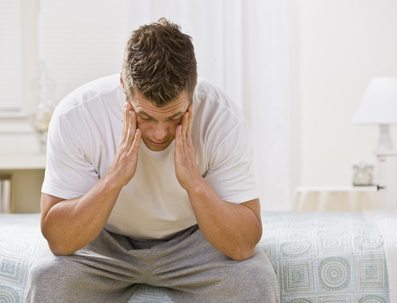
Can seasonal affective disorder make you sleep more?
The shorter days and colder temperatures of winter can make anyone want to stay in bed and sleep a few more hours. However for those who live with seasonal affective disorder too much sleep can get in the way of things they want to accomplish in life.

What is SAD?
According to the National Institute of Mental Health (NIMH) seasonal affective disorder (also known as SAD) is a type of depression that affects people seasonally. It's most common during the fall and winter and typically resolves by spring and summer. Beyond sleeping issues symptoms of SAD include:
- Fatigue
- Excessive eating often leading to weight gain
- Cravings for high-carbohydrate foods
- Social withdrawal
- Emotional changes such as sadness irritability hopelessness and loss of interest in your normal activities
Those affected may also have symptoms typical of a different major depressive disorder but with episodes primarily confined to the winter season.
How SAD affects sleep
According to the National Sleep Foundation sleep is regulated by exposure to the sun. When the days are shorter in the winter it can affect your natural circadian rhythm increase feelings of sleepiness and even cause depression.
The NIMH also explained that exposure to darkness increases the body's production of the hormone melatonin which helps to regulate sleep. This encourages individuals affected with SAD to want to sleep more and to feel tired and lethargic when they are not sleeping. The organization also pointed to the possibility of a vitamin D deficiency in people affected with SAD which can result in symptoms of depression.
Getting treatment
When springtime comes the longer days and increased exposure to the sun's rays help regulate the body's circadian rhythm and a more normal sleep cycle is typically restored.
However if daytime sleepiness is still significantly affecting the person's life - maybe a child is having difficulty waking up in time for school or an adult is unable to go to work - then there are effective treatments available for this condition. Options may include light therapy vitamin D supplementation antidepressant medication and psychotherapy.
If you feel you may be experiencing symptoms of seasonal affective disorder contact a health care professional to learn more and get the help that you deserve.

